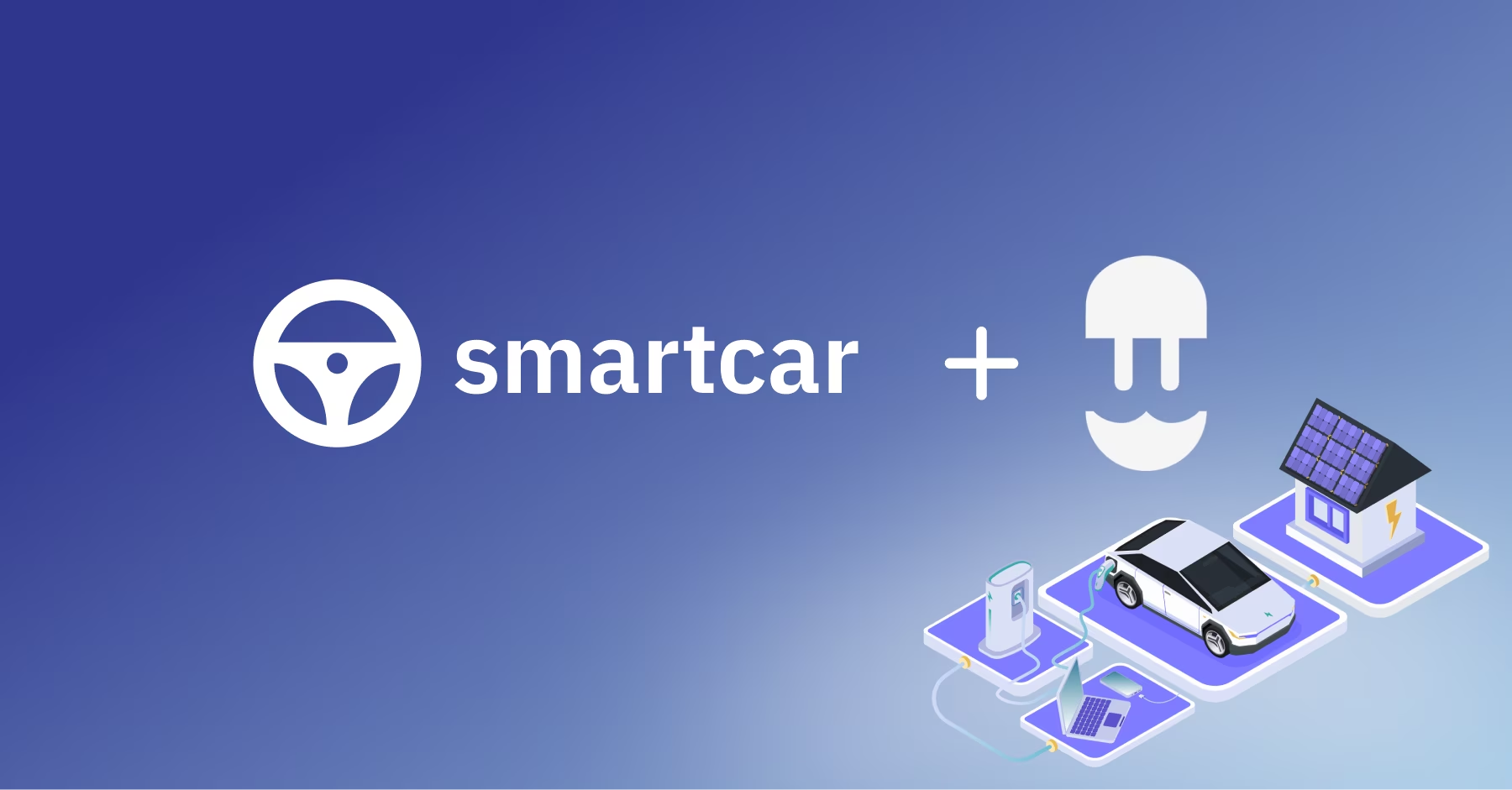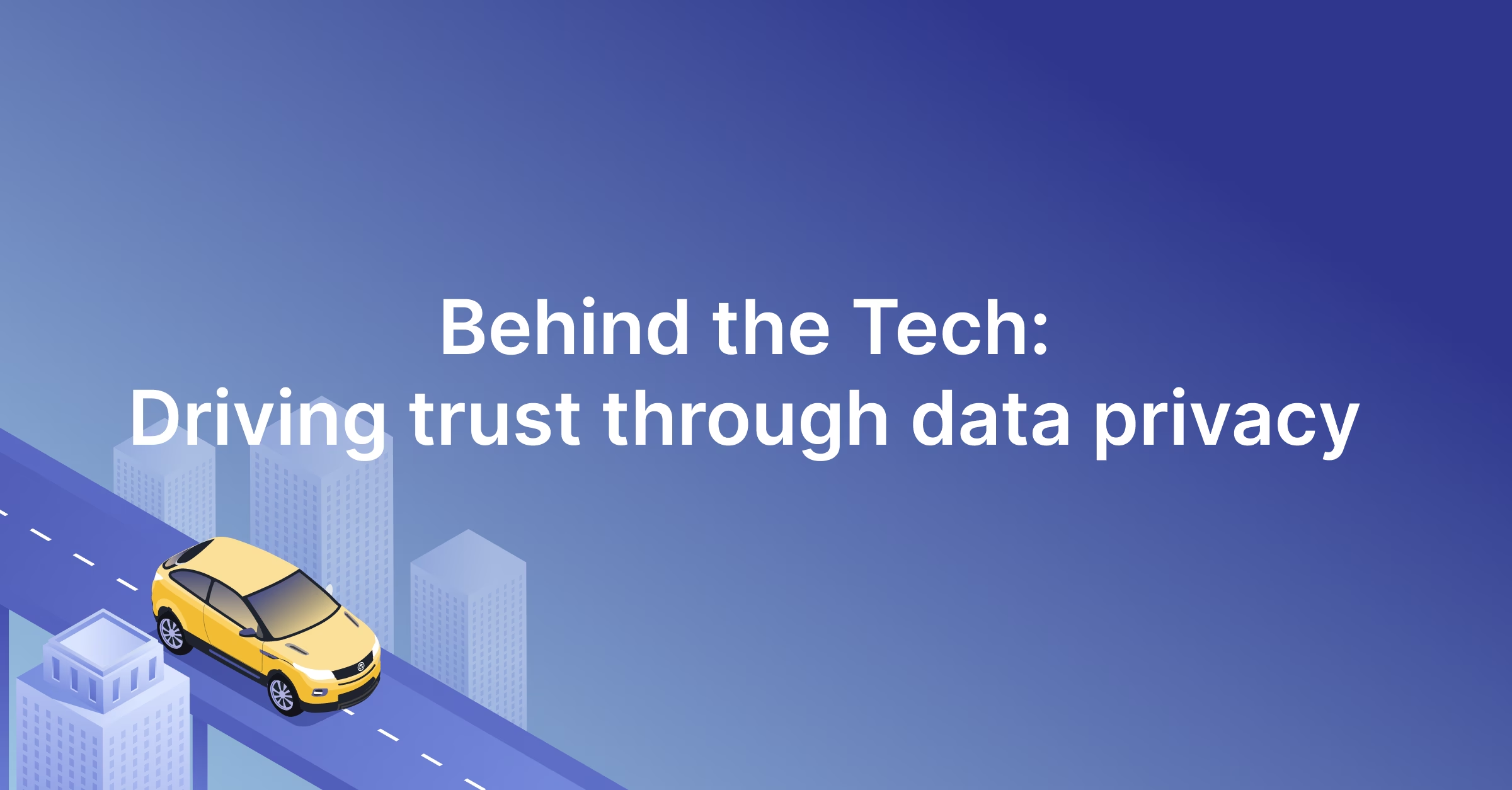Connected cars share connected car data with apps and services to make vehicle ownership easier than ever. Now, connected cars are no longer a novelty. Research by S&P Global Mobility shows that by 2025, 350 million vehicles on the road globally will support over-the-air update capabilities, while 25% of new vehicles will have built-in 5G connectivity. Today, 9 out of 10 new cars shipped in the US are connected.
But despite this technology becoming more common, there remains a significant gap in how consumers perceive the benefit of car data and how it should be best shared and managed by drivers and automotive services.
It begs the question: What choice do consumers have over how they use their own car data to make mobility convenient, accessible, and economical?
In this blog, we’ll explore how connected car data is reshaping mobility, how automakers and mobility businesses can bridge the trust gap with consumers, and why open car data principles can transform the industry by giving drivers more control over their mobility experiences.
The value of car data is often overlooked
Car data isn’t limited to static or transactional information that’s only useful for remote vehicle monitoring. Instead, the dynamic applications of this data by mobility businesses help drivers optimize their vehicle performance, energy usage, driving habits, and cost of living. For example...
- Car data allows automated mileage tracking for a driver's auto insurance company or vehicle reimbursement program.
- Drivers can rent out their vehicle on car sharing platforms without the need to hand over their keys.
- Drivers can even allow their electric utility provider to automatically charge their EV optimal times or get accurate vehicle trade-in rates with their car dealership.
Over the past decade, automakers have largely focused on navigation and remote services as core features in their connected services subscription packages. This is why many drivers are unfamiliar with the variety of ways car data can be used to alleviate the hassle of being a car buyer, setting up a vehicle sale, owning and maintaining a car, or improving customer experience across different auto services.
The amount and pace of innovation [in connected services] hasn’t kept up with the industry standard — which everyone compares to their smartphone that is always getting better.
If automotive telematics platforms aren't able to even approach that level of innovation and pace of change, it's viewed as underwhelming. That’s a perception we'd like to find a way to change in the market.
— Dan Teeter, Director of Partnerships at Smartcar
Recurrent, for example, has tens of thousands of EV drivers who use the platform for regular EV battery reports, giving them insights that automaker apps can't always provide.
These EV drivers are likely using Recurrent alongside other apps that use EV car data to locate or rent nearby EV chargers or sync their home charging with lower cost energy rates. for EV charger location or syncing their home charging with energy-saving rates.
Predictive maintenance is another key automotive experience that car data can transform. Treads uses connected car data to power its tire subscription service and predictive maintenance feature, sending predictive alerts based on the data they retrieve on a vehicle’s mileage and tire usage.

What would an ideal future of car data look like? Imagine an ecosystem where consumers could seamlessly and securely connect to and disconnect from a range of services that best meet their needs—irrespective of the car brand or model they drive.
If this sounds far-fetched, think again 👀
What does car data do?
Car data serves various purposes, such as providing real-time vehicle data to help drivers adjust their driving habits, GPS data for enhanced navigation capabilities, safety features, on-demand controls, and more.
But that's not all.
Just as financial data in the open banking ecosystem unlocks new services for consumers, car data has the potential to open up numerous opportunities for vehicle owners to connect seamlessly with the apps and services they use regularly.
With an interoperable data standard in place, automakers and mobility companies could enable various innovative applications that go beyond the basic in-vehicle experience. Here’s a glimpse of what that could look like:
| Use case | Description | Data points (e.g.) | Consumer benefit |
|---|---|---|---|
| Remote Vehicle Access | Allows remote services such as unlocking doors, starting engine, or locating vehicles. | Location, lock and unlock commands, engine status | Improve security and convenience by remotely managing vehicle access and locating vehicles. |
| Predictive Maintenance | Predicts when a car is due for maintenance based on mileage and usage patterns. | Odometer, tire pressure, engine oil life | Prevents unexpected breakdowns and reduces vehicle repair costs |
| EV Charging | Personalizes EV charging by enabling route planning and charging management based on driver preferences. | State of charge, charging status, start and stop charge commands, location | Reduces range anxiety, charging wait times, and costs |
| Energy Management | Optimizes household energy usage and costs through the management of energy resources like EVs | State of charge, charging status, start and stop charge commands, location | Lowers household energy costs and carbon emissions by better maximizing renewable energy sources |
| Auto Insurance | Provides personalized or usage-based insurance rates based on driving patterns | Speed, braking, acceleration, odometer, location | Lowers the car insurance premium for drivers and provides more tailored coverage options |
| Tolling and Road Use Management | Automates toll payments and charges based on road usage and location data | Location, vehicle identification, odometer | Streamlines toll payments and reduces manual intervention for road use charges |
| Fleet Management | Tracks vehicle performance, mileage, and routes to optimize fleet operations | Odometer, tire pressure, engine oil life, lock and unlock commands, EV battery, vehicle identification | Enhances trip safety, reliability, and convenience when fleet vehicles are in use |
| Ride-Hailing | Enables better trip-matching for drivers and passengers | State of charge, fuel tank level | Eliminates range anxiety by ensuring passengers are matched to rides that fall within their requested distance. |
| Vehicle Reimbursement Program | Tracks and verifies vehicle mileage to provide accurate reimbursements for businesses or personal vehicle use | Odometer, location, EV battery, fuel tank | Eliminate the need for manual mileage entry while increasing the accuracy of reimbursements |
The car data trust gap
Despite the potential benefits, many consumers remain hesitant about sharing their car data due to privacy concerns. Connected cars are seen as a privacy risk. Stories of vehicle data and personal information being collected and sold to other parties (like an insurance company, law enforcement, or third-party broker) without consumer knowledge have understandably sparked fear.
These concerns stem from the fact that connected car data is being used in some use cases without clear consent mechanisms or transparency. Consumers do not get the opportunity to learn about and buy into the value of vehicle connectivity if they aren’t aware of what data is being collected or how it’s being used.
At Smartcar, we believe that trust must be built through a consent-driven approach that allows automakers to enable consumer choice by prioritizing transparency and control.
This means:
- Simplifying the jargon often associated with car data sharing
- Ensuring consumers have complete control over how their data is shared through consent management.
The only problem we have in the automotive industry is that that exchange is not really explicit and is not really being spelled out.
Automakers will recite the catechism that the customer owns the data, but the average car owner has no idea where to find the data or has little knowledge of exactly which data is being gathered — and then they hear headlines about car companies selling data now that they may be selling anonymized data.
— Roger Lanctot, Director of Automotive Connected Mobility at TechInsights
Are consumers willing to share their car data?
Just because drivers are cautious about sharing their data doesn’t mean they’re unwilling to do so. We'll share some interesting trends we've learned:
- In a webinar discussing Smartcar’s 2023 State of Connected Car Apps report, Lanctot shares how research by TechInsights across China, North America, and Europe found that many consumers are willing to exchange their privacy for a clear value proposition.
- Research by Marketwatch discovered that although only 26% of consumers surveyed were comfortable sharing data with auto insurers, this number rose to 72% when asked if they were willing to share certain data to reduce their insurance premiums.
Two factors come into play here: Consumers know what data points will be collected and consumers know what benefit to expect from sharing their data.
When the benefits of sharing car data are clear, consumers are are better positioned to experience the full impact of a connected car solution. They’re incentivized to engage with services powered by car data and are fully informed on how to best integrate these solutions into their daily routines.
What does consent management for car data look like in action?

Car data and consumer choice go hand-in-hand
You can’t have one without the other.
The intended impact of car data cannot be put to fruition without a mechanism in place to manage consumer choice and permissions. Smartcar is at the forefront of this movement. Our goal is to reshape the future of mobility by ensuring that drivers have the power to decide how their data is used, unlocking new levels of convenience, safety, and personalization along the way.




.jpg)

